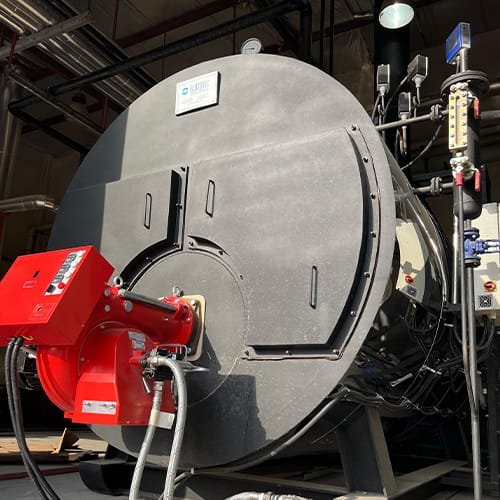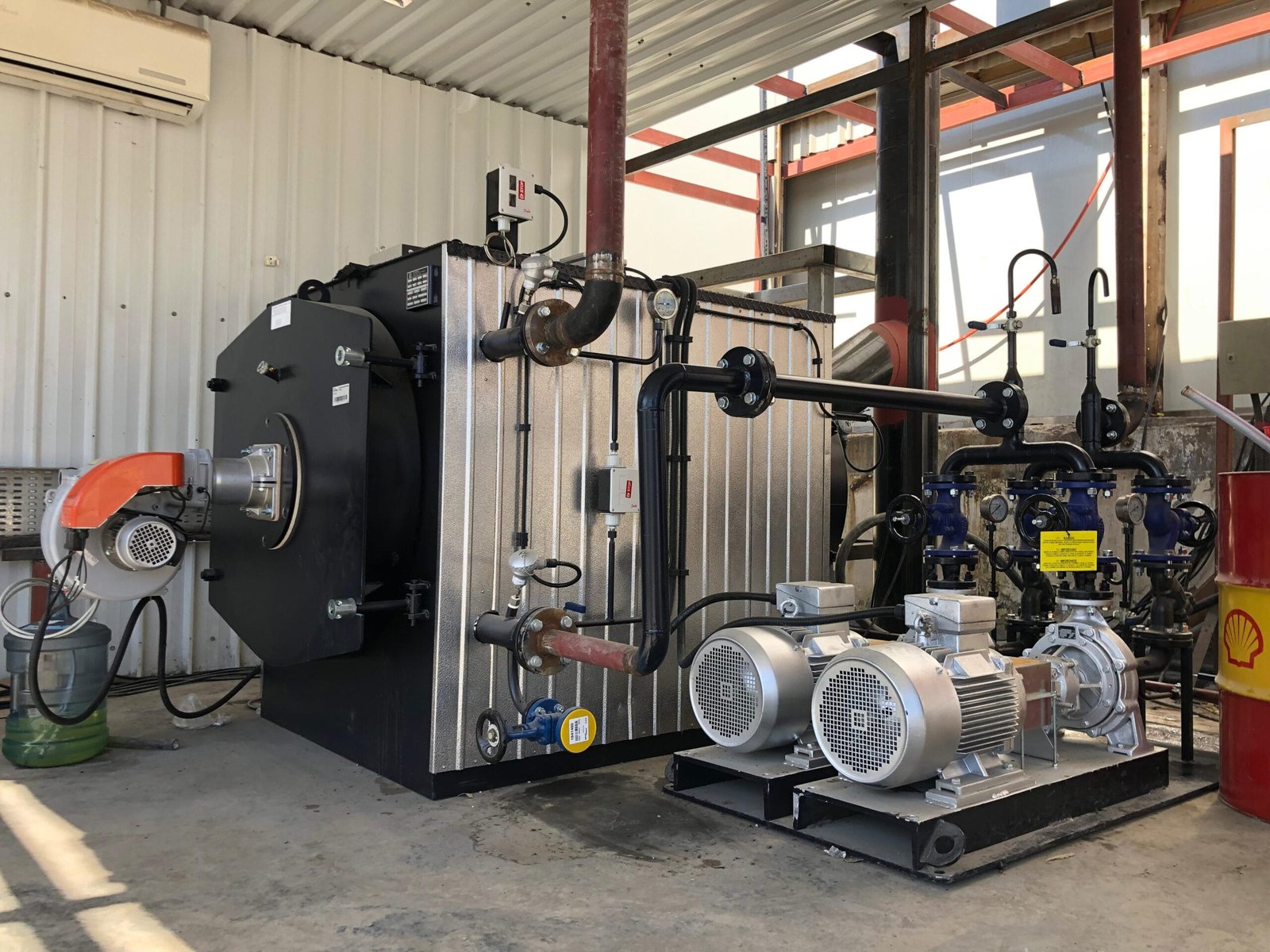Industrial Boilers
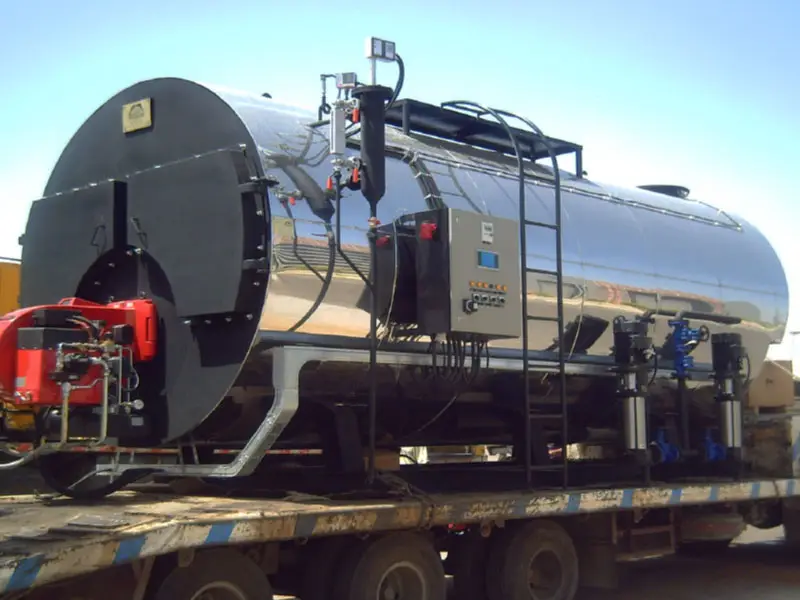
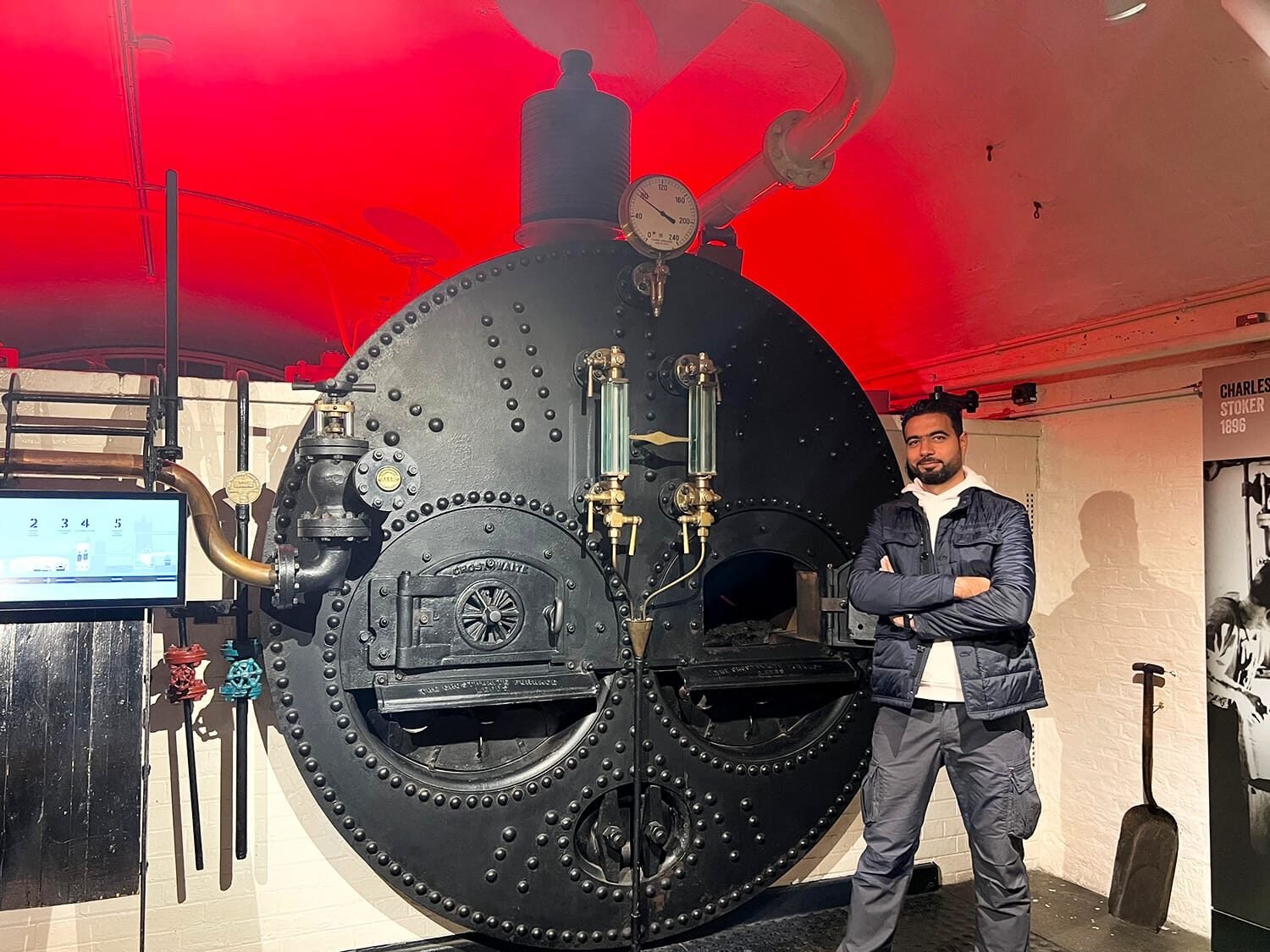
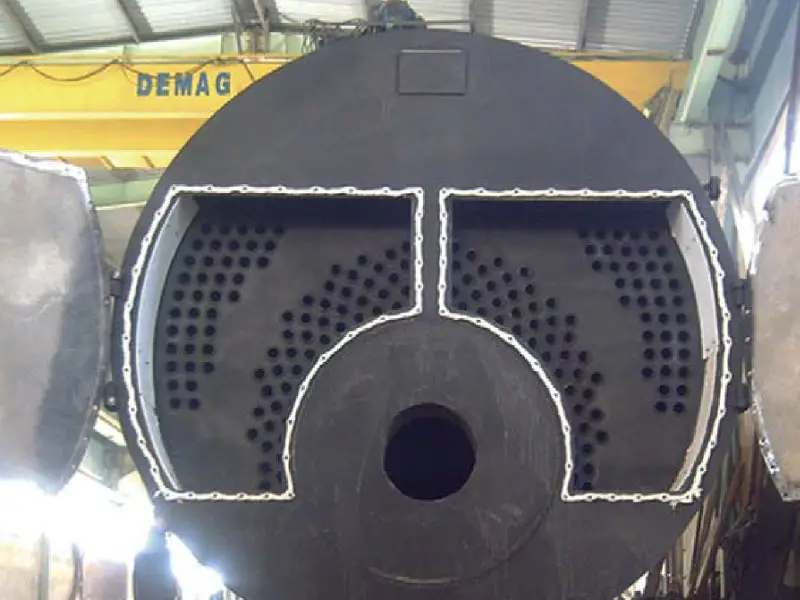
What are Industrial Boilers? How Do They Enhance Production Processes?
TESI’s industrial boilers in UAE support industries in optimizing production and heating efficiency.
Before delving into the applications and benefits of boilers, let’s clarify what a boiler is and its fundamental operation.
A boiler is a closed vessel where water or another suitable liquid is heated to generate steam or vapor. This steam or vapor can be used for numerous purposes, such as heating applications (like water heating and central heating), powering generators, or even cooking. Boilers serve both domestic and industrial purposes; additionally, they adjust in scale and design to meet specific needs.
Boilers function similarly to a pressure cooker, but on a much larger and more complex scale. Industrial boilers generally work by heating a liquid within a system, generating steam, which then exits the boiler to perform various tasks. The steam production process involves combustion products coming into contact with water, transferring heat, and creating steam.
While domestic boilers are smaller and fulfill household needs, industrial boilers play a significant role in the manufacturing and production process, offering substantial output and efficiency. Industrial boilers vary in type and purpose, catering to the energy demands of different industries.
Industrial boilers can be eco-friendly, especially if fueled by natural gas or other clean energy sources. These environmentally conscious options not only provide excellent performance but also help reduce emissions, supporting industries in their environmental responsibilities.
Boilers have been used for centuries to produce steam, initially for household tasks and later evolving into industrial applications. Today, industrial boilers are indispensable in sectors ranging from power generation to food production. The heat produced by these boilers has driven everything from steam-powered locomotives to modern power plants, showcasing their vast applicability.
Heat is crucial to our daily lives and industrial processes alike. Just as pressure cookers use steam for cooking, boilers provide a reliable source of heat for numerous manufacturing needs. Boilers also offer an energy-efficient alternative to electricity, reducing reliance on costly fossil fuels.
Types of Industrial Boilers We Offer
To cater to a wide range of industrial heating needs, we provide three primary types of industrial boilers, each designed for specific applications and optimized for energy efficiency and performance.
- Steam Boiler
- Hot Water Boiler
- Thermal Oil Boiler
Steam Boilers
TESI’s steam boiler solutions in UAE provide high-pressure steam, ideal for powering a variety of industrial processes.
What is a Steam Boiler?
A steam boiler is a closed vessel in which water is heated under pressure to produce steam. This steam can then be directed and used to power a variety of industrial equipment and processes. Steam boilers are typically fueled by natural gas, oil, coal, or electricity and are designed to create high-pressure steam efficiently and reliably.
How Does a Steam Boiler Work?
Steam boilers operate on a simple but powerful concept. Fuel is burned in the combustion chamber, generating heat that’s transferred to water within the boiler. As the water reaches its boiling point, it turns into steam and is pressurized. The steam then exits the boiler through pipes and is used for industrial processes, heating, or power generation.
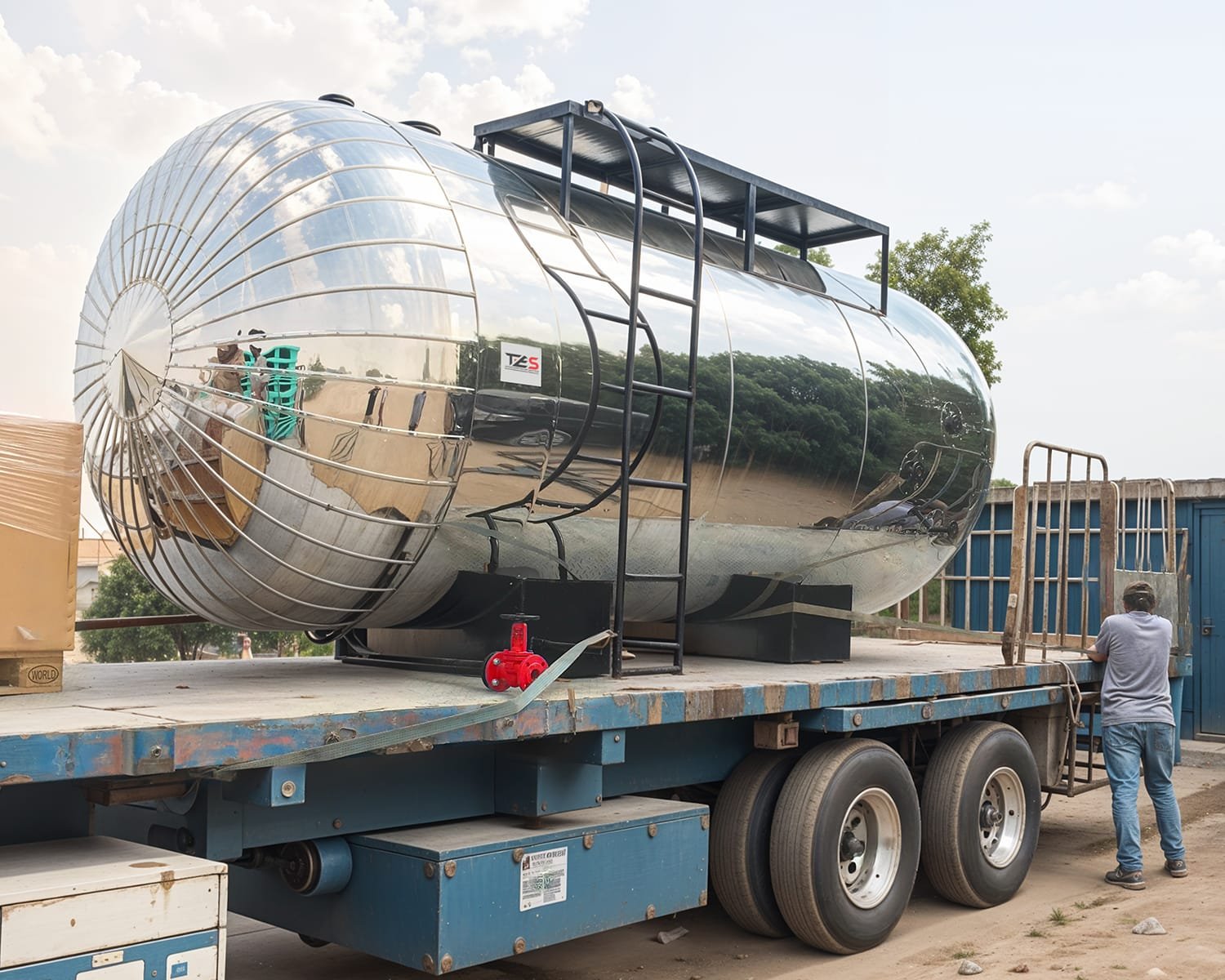
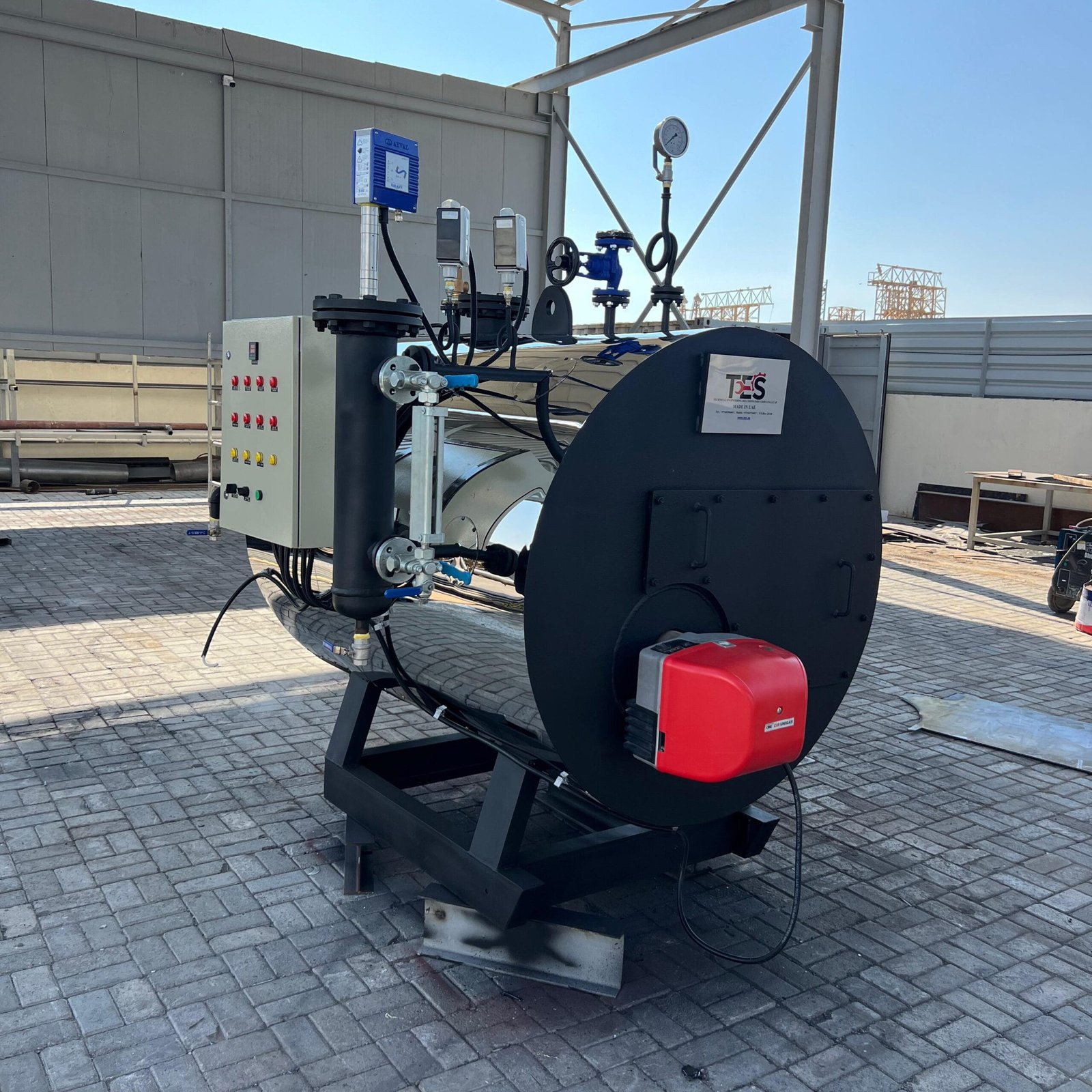
Advantages of Using a Steam Boiler
Steam boilers are highly efficient at converting fuel into usable steam energy, providing a cost-effective solution for industries.
Steam boilers offer steady, reliable steam output, which is crucial for continuous industrial processes.
Steam boilers can reach high temperatures and pressures, enabling them to meet the rigorous demands of industrial applications.
Hot Water Boiler
A hot water boiler is a type of boiler that heats water for a variety of applications, from heating buildings to supporting industrial processes. Unlike steam boilers, which generate high-pressure steam, hot water boilers heat water to a specified temperature and circulate it through a network of pipes. These boilers are generally low-pressure systems and are widely used in both commercial and industrial environments for their energy efficiency and steady output of hot water.
In a hot water boiler, a fuel source (such as natural gas, oil, or electricity) heats water to a pre-set temperature. The hot water is then circulated through a system of pipes and radiators, or other heat transfer devices, to deliver warmth or hot water to different parts of a facility. Once the water loses heat in the system, it returns to the boiler, where it is reheated and recirculated. This closed-loop system ensures efficient energy use and reduces waste.
Our hot water boilers are designed with reliability, efficiency, and durability in mind. With advanced temperature control systems, built-in safety features, and robust construction, our boilers provide consistent and reliable hot water, optimized for energy efficiency and minimal maintenance. Whether you need heating for large commercial spaces or high-temperature water for industrial processes, our hot water boilers offer a tailored solution for various applications.
Thermal Oil Boiler
A thermal oil boiler, also known as a thermal oil heater, is an industrial heating system that uses thermal oil as the heat transfer medium instead of water or steam. These boilers are designed to provide high-temperature heat at low pressures, making them ideal for applications that require stable, high-temperature heating without the risks associated with high-pressure steam.
How Does a Thermal Oil Boiler Work?
In a thermal oil boiler, a fuel source (such as natural gas, oil, or biomass) heats the thermal oil within a closed-loop system. This heated thermal oil is then circulated through a series of pipes or coils to transfer heat to the required areas or processes. The oil retains its heat as it circulates, and once it loses heat during the process, it returns to the boiler to be reheated, ensuring continuous and efficient heat transfer.
Our hermal oil boilers are designed with durability, safety, and energy efficiency in mind. Equipped with advanced controls, they offer precise temperature management and seamless operation for high-temperature heating processes. Whether for chemical production, plastics, food processing, or other applications, our thermal oil boilers provide reliable, cost-effective heating solutions.

